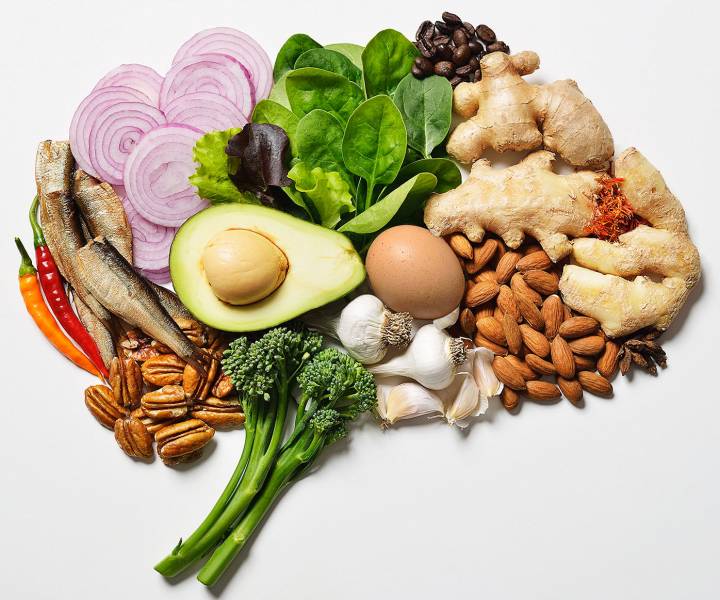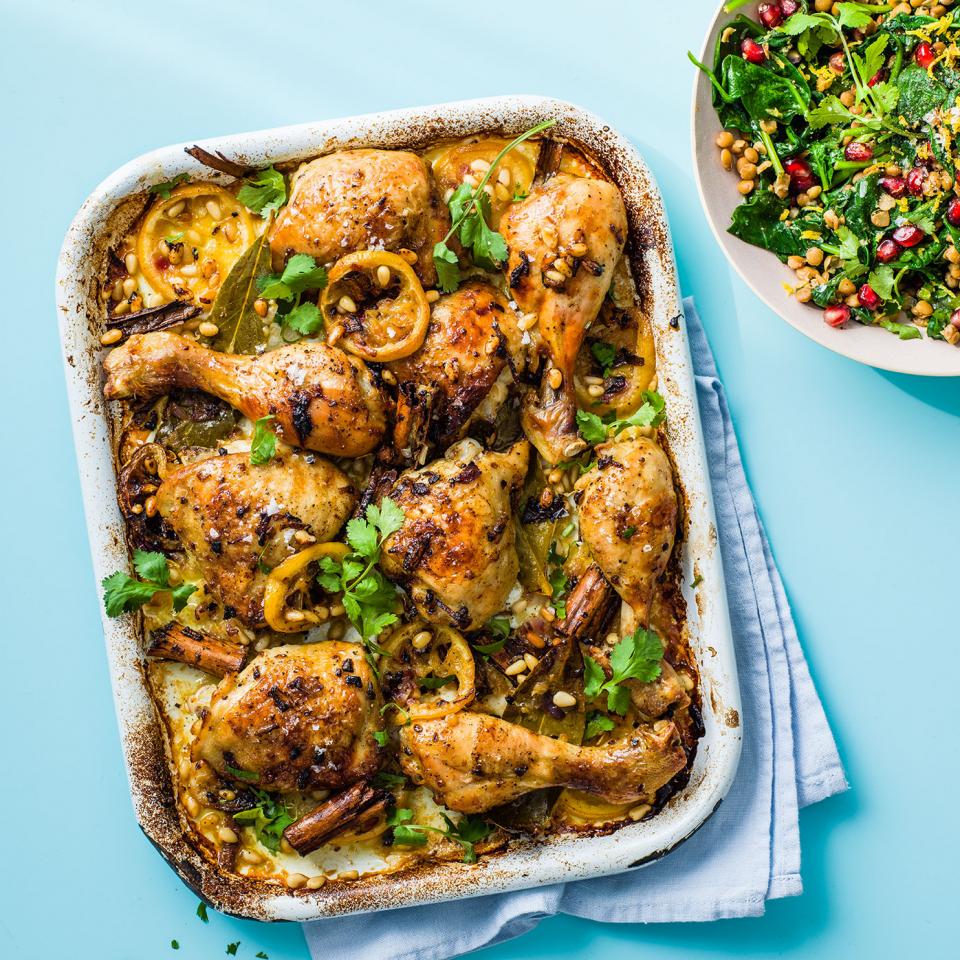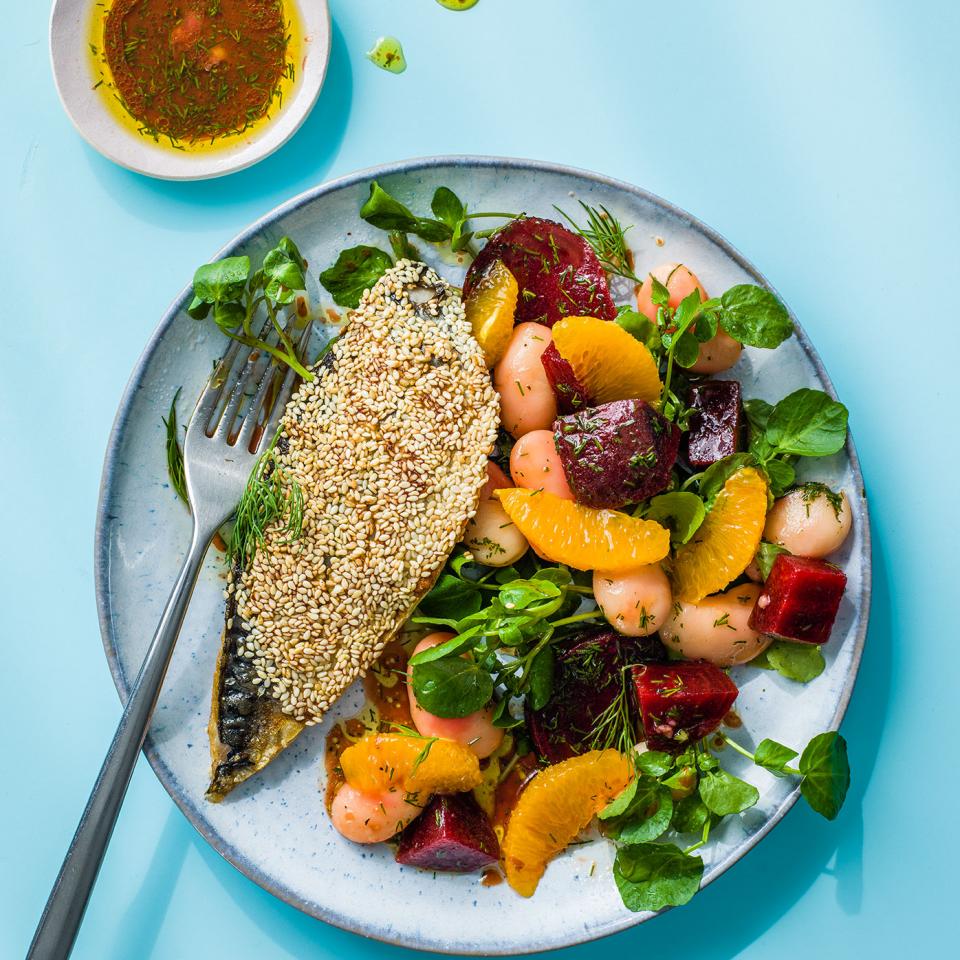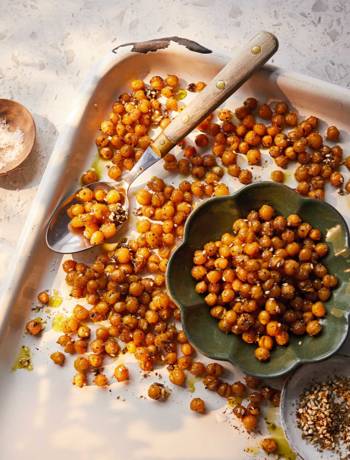Health
How healthy is your brain?
by Sarah Maber

You religiously use sun cream and head to the gym to fight the flab – but there’s one vital organ you’re probably not taking good enough care of, says Sarah Maber
What do you do to look after your brain? If, like most of us, the answer is a resounding ‘uh, nothing’, then it’s time for a rethink. Your brain is the most complex organ in your body and your lifestyle has the power to shape it – for better, or worse – into old age. ‘Your brain is invaluable,’ says Dr Sabina Brennan, author of 100 Days To A Younger Brain (Orion Spring, £14.99). ‘It is the greatest gift you will ever receive, so treasure it, nurture it and stimulate it so that you can reach your full potential throughout your entire life. It’s never too early or too late to invest in brain health.’ Cheering words.
And while there is no escaping the fact our brains shrink as we age – between the ages of 30 and 90, most of us will lose up to a third of our hippocampus, which controls memory and learning – a deteriorating brain is far from inevitable. Scientific research is now proving that the way we live our lives has an indelible impact on our brains – and that anyone who takes steps to shore up their memory and mental agility now will reap rewards in terms of brain health later. ‘Brain atrophy is linked to many preventable, modifiable and reversible factors,’ says Dr Brennan. ‘Adopting a brain-healthy approach to life that excludes smoking and includes regular physical exercise, social engagement and mental stimulation, plus a healthy diet and optimal amounts of sleep and stress, may help prevent or slow down the rate at which your brain shrinks.’

Research suggests that as well as making lifestyle tweaks, it is crucial to build up ‘cognitive reserves’ that your brain can draw on when faced with damage. ‘Hundreds of scientific studies have shown that the human brain is quite the fighter,’ says Lisa Mosconi, of the Alzheimer’s prevention clinic at the Weill Cornell medical college in New York and author of Brain Food (Penguin Life, £14.99). ‘A healthy brain can take a lot of punches before being knocked out, or in biological terms, before exhausting itself to capacity. Then, and only then, do symptoms occur.’ So how can we increase these reserves? Here are some steps you can take:
Eat right
Some foods such as vegetables, fruit, fish, wholegrains, nuts and seeds have been shown in studies to be neuro-protective, says Lisa Mosconi, whose own research has highlighted the benefits of eating a Mediterranean diet. ‘When we compared the scans of middle-aged people who had eaten a Mediterranean diet most of their lives with those of people of the same age who ate a Western diet with processed food, processed meats, sweets and fizzy drinks, we saw the way the latter group’s brains had shrunk prematurely,’ she says. She recommends minimising sugar and processed food, using extra-virgin olive and flaxseed oils; eating complex carbohydrates such as wholegrains, legumes and sweet potatoes, consuming berries and leafy greens for their antioxidant, brain- protective powers, and eating oily fish once or twice a week for its nutrients and omega-3s. Finally, she adds, drink plenty of water. ‘As a neuro-nutritionist and brain health advocate, I’m convinced of the value of drinking enough water. Of all the tricks I’ve learned for keeping my mind sharp, staying hydrated might be the one I follow most religiously, starting with a glass of water first thing in the morning.’

Deal with a lack of sleep
Recent studies have shown the potential of sleep to ‘clean’ the brain of damaging toxins, making it all the more important to get enough shut-eye. ‘Sleep deprivation impacts on various aspects of cognitive function, including attention, learning and memory,’ says Dr Sabina Brennan. ‘Get the recommended number of hours sleep every night. Your brain needs both non-REM and REM sleep, so go to bed at the right time, preferably at some point between 8pm and midnight.’ Remember, she adds, that sleep is fundamental to brain health. ‘Reframe it as an elixir for your brain.’ MOVE Did you know that the more steps (literally) you take to get fitter, the healthier your brain becomes? Physical activity changes your brain by enhancing connections and stimulating the release of a molecule called the brain-derived neurotrophic factor (BDNF) that protects brain cells from stress and encourages new neurons to grow. The prescription? Exercise every day, and get up and walk around every hour. ‘When I’m working at my laptop for long periods, which is most days, I set an alarm for every 30 minutes to remind me to move for a couple of minutes,’ says Dr Brennan.
Sort out stress
The goal here isn’t to banish stress from your life. Some stress is good for you – but chronic, elevated stress levels aren’t. ‘Having an optimal amount of stress in your life is important as it motivates you to attain your goals, allows you to adapt to your changing environment and meet daily challenges,’ says Dr Brennan. She recommends limiting avoidable stress, like frantically searching for lost keys (nominating a single place for all your important things could help you keep track). ‘If stress hormones continue to be released, the consequences can be negative,’ says Dr Brennan. ‘Chronic stress in the long term is consistently associated with poorer cognitive performance, increased incidence of dementia and accelerated cognitive decline.’
Keep learning
It’s not enough to settle down with the crossword every Saturday. To protect your brain, you need to actively challenge it. ‘While everyday leisure activities are clearly beneficial,’ says Dr Brennan, ‘you can really ramp up the brain-health benefits by challenging yourself and by learning and experiencing new things. Routine activities don’t challenge your brain, you need to push yourself to the next level, try something different or learn something new.’ Try a new language or an instrument, or challenge yourself with a complicated recipe. Mosconi also recommends board games as the leisure activity most consistently linked with a reduced risk for dementia – they offer a potent, brain-protecting combination of social activity and intellectual.
Try our brain-healthy recipes
Spiced chicken traybake with spinach and lentils












